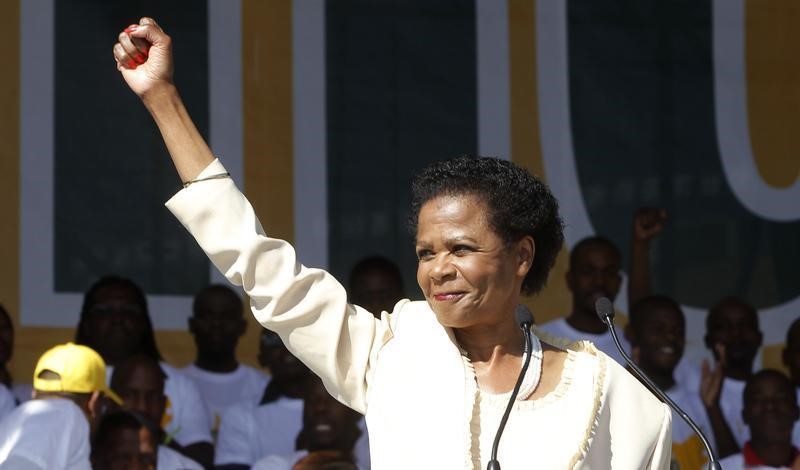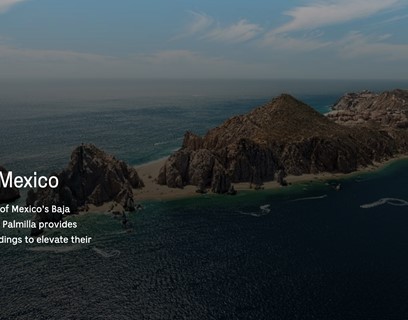
South Africa's main opposition party will field a black candidate for president for the first time, it announced on Tuesday, effectively firing the starting gun for the most fiercely contested election in two decades of democracy.
Mamphela Ramphele, an anti-apartheid activist and former partner of black consciousness leader Steve Biko, will represent the Democratic Alliance (DA) against incumbent president Jacob Zuma of the African National Congress (ANC).
Ramphele agreed to join the DA after her own party, Agang SA, failed to gain traction among voters and was reported to be broke.
The political marriage brings together a charismatic leader who lacked organisational resources and a party that has strong structures but has long battled a perception that it is white-dominated and evocative of the apartheid past.
The national elections, likely to be held in April or May, have been described as a "tipping point" and will be the first since the death of former president Nelson Mandela. His party, the ANC, is on course to retain power but widespread frustration at corruption, poverty, unemployment and weak public services offers rival parties a chance to eat into its majority.
Ramphele, aiming to become the country's first female president, was a black consciousness activist and mother to two children with Biko, who was beaten to death in apartheid police custody in 1977. She is close to DA leader Helen Zille who, as a campaigning journalist, exposed Biko's death. Zille later served as Ramphele's head of communications when she was vice-chancellor of the University of Cape Town.
On Tuesday the women sat side by side at a press conference in Cape Town. "I can think of no better person to be our presidential candidate in this crucial election," said Zille, embracing her new political ally. "This is a game-changing moment for South Africa."
Zille, who will remain as DA party leader, added later: "Nobody in their right mind would accuse her being a candidate who wants to bring back apartheid … It removes the race card from that debate."
Ramphele, 66, alluded to the loss of Mandela as a symbol of the changing political landscape. "I believe this decision is in the best interests of South Africa as we head into turbulent waters," she said. "The death of Nelson Mandela has changed many things for South Africa."
She added: "Today is another astonishing moment in what we offer the people of South Africa, and once again the world. A moment to once again glimpse the greatness that is in us."
The DA has been steadily growing its support base and claims to be the most racially diverse party in the country, although many analysts have said it urgently needs a black leader to appeal to the country's black majority. It gained 16.66% of the popular vote at the last election in 2009, still well behind the ANC's 65.9%.
Ramphele, who in the past criticised the DA as a "white party", said: "We are going to take away the excuse of race and challenge the ANC to be judged on its performance. We are taking away that race card and putting it in the dustbin."
The realignment provoked a mixed reaction.
Zille's predecessor as DA leader, Tony Leon, said: "This gives the DA and opposition a lot of momentum carrying right through to the election. South Africa is still largely in thrall to the politics of political identity rather than personality."
But Eusebius McKaiser, a political analyst and author of the forthcoming book Could I Vote DA?, condemned the party's leadership for demonstrating "incredible insecurity" about its ability to win support. "If they were confident, why would they need to court the leader of another party?"
He added: "It is a tactical misstep on the part of the DA. It won't cost them votes but it will cost them internal tensions. Not everyone in the party agrees with it, including senior black members I've spoken to."
Gwede Mantashe, secretary general of the ANC, said: "It's a rent-a-leader and a rent-a-black-face." Referring to Agang SA, he said: "It's another report of another stillborn party. A party that dies before it is born."
Ramphele is a medical doctor, academic, former World Bank managing director and mining company executive; last year she revealed her personal wealth as 55m rand (£3m). Her fledgling Agang SA party looks set be swallowed up by the DA, leaving some members with a sense of betrayal.
Nomboniso Gasa, an academic who introduced Ramphele to the media at an Agang SA launch event nearly a year ago, expressed disappointment at her U-turn: "I do think Mamphela has been extremely untidy in the way she's dealt with this. I don't think she's been as open as she could have been. It raises questions about how she understands political leadership and it makes me uncomfortable. She has a problem of credibility because she told people one thing and she's doing a completely different thing."
A survey by Ipsos published earlier this month showed the ANC's national support dropping to 53%, with the DA rising to 18% and Julius Malema's Economic Freedom Fighters on 4%. Agang SA polled only 1%.
Source: THE GUARDIAN
_x000D_

